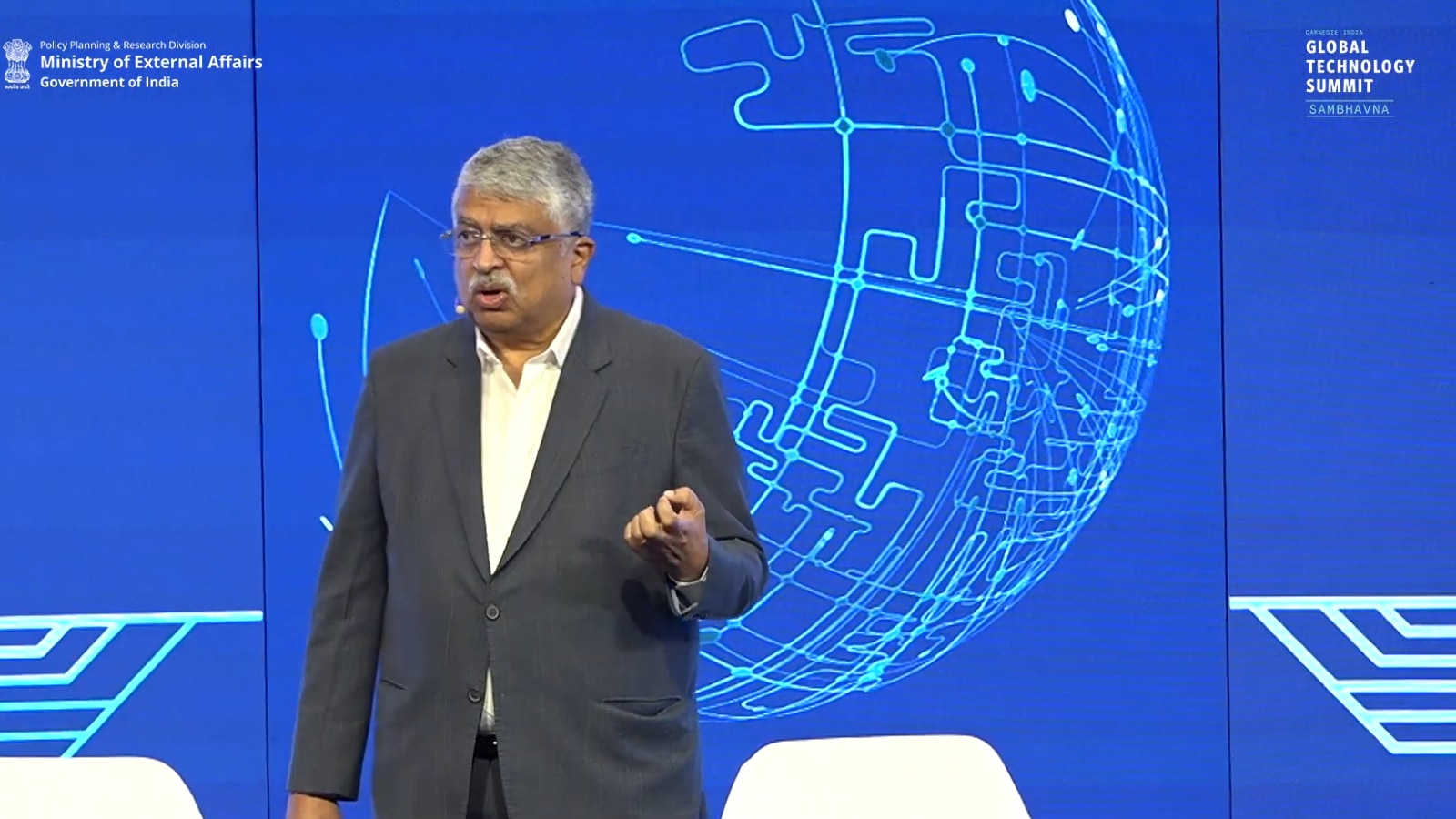Artificial intelligence (AI) is hyped to revolutionise almost every aspect of both our professional and personal lives. Nandan Nilekani, co-founder of Infosys and NASSCOM, cuts through the noise with a “reality check on AI” during his keynote at the Carnegie India Global Tech Summit, held in New Delhi on April 11.
In his presentation, Nilekani highlighted the delicate issue of trust in machines, the gap between AI hype and practical implementation, and how India can seize this opportunity to drive human advancement.
Here are five key takeaways from Nilekani’s perspective on AI:
“We are facing challenges in building AI at scale and making it work for everyone. Products are getting delayed; it’s taking more time due to complications, including internal politics. Institutions, individuals, and egos all play a role in the world of AI, and making it work at scale and useful for everyone is proving to be far more difficult than we expected,” he said.
“For the first time in human history, we intend to place trust in non-human intelligence for decision-making,” said Nilekani, adding that technology was deterministic and predictable earlier.
“Now, we’re expecting machines to make decisions—this requires a huge leap of faith and confidence in AI’s potential to move us forward,” he added.
Adopting AI is harder in the enterprise world than in the consumer space, said Nilekani, as it is “easier to scale AI for consumers because they tend to be more forgiving”.
Story continues below this ad
“Enterprises, on the other hand, must ensure they don’t provide incorrect answers since their brand reputation is at stake. Even a 1–2 per cent error rate in AI-generated outputs can affect the brand,” he said.
AI adoption, according to Nilekani, is “not about dumbing people down” but “about improving human capability, capacity, and potential”. He cited that several states across India are building open agricultural networks, allowing farmers to access vital information in their preferred languages.
“We expect AI adoption to take 10–15 years globally, but in India, it can happen much faster. Thanks to the technological advancements of the last 15 years, the gap between global AI development and India’s AI progress could be much shorter than expected,” he said.
To sum it up, Nilekani emphasises that building AI at scale is proving to be more difficult than anticipated due to delays, internal politics, and human dynamics, and there is an unprecedented challenge of placing trust in non-human intelligence for decision making. He also says that AI should enhance human potential rather than replace it and that India is uniquely positioned with technological advancements in AI adoption.






